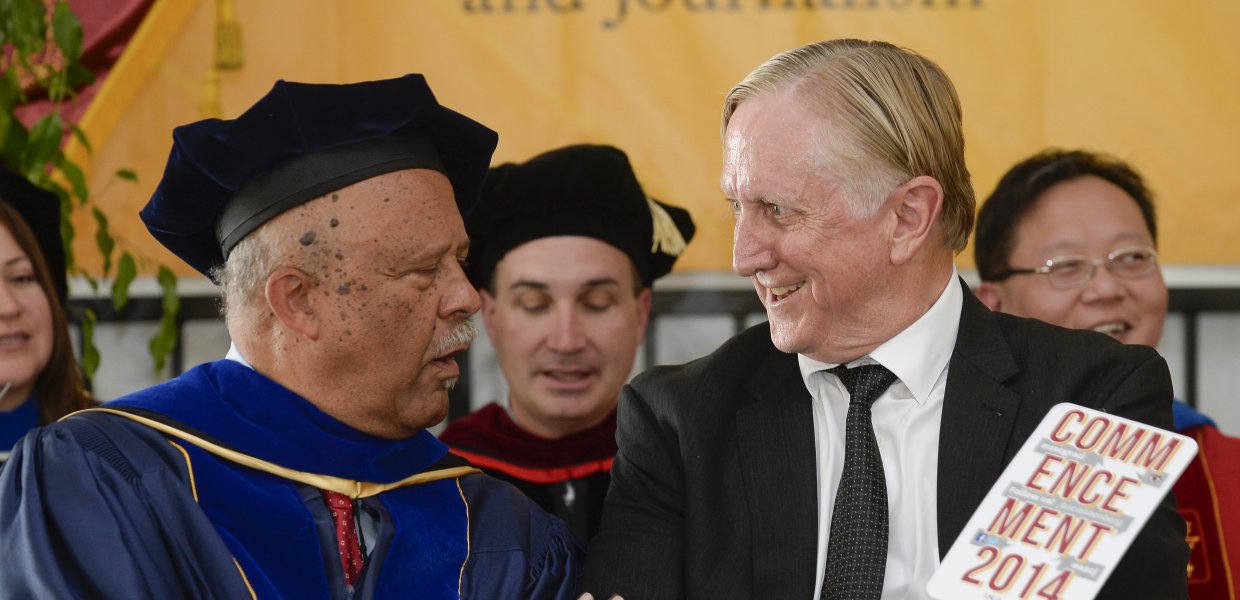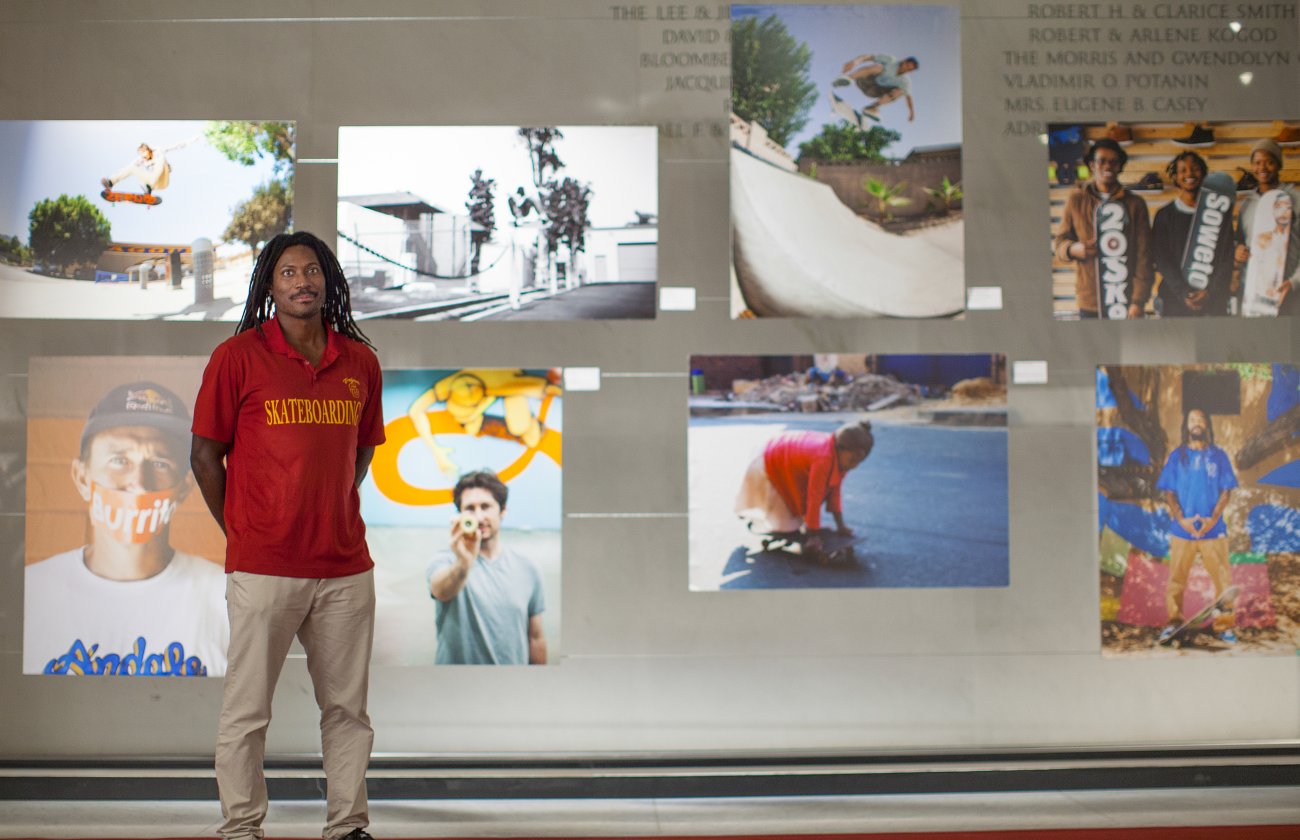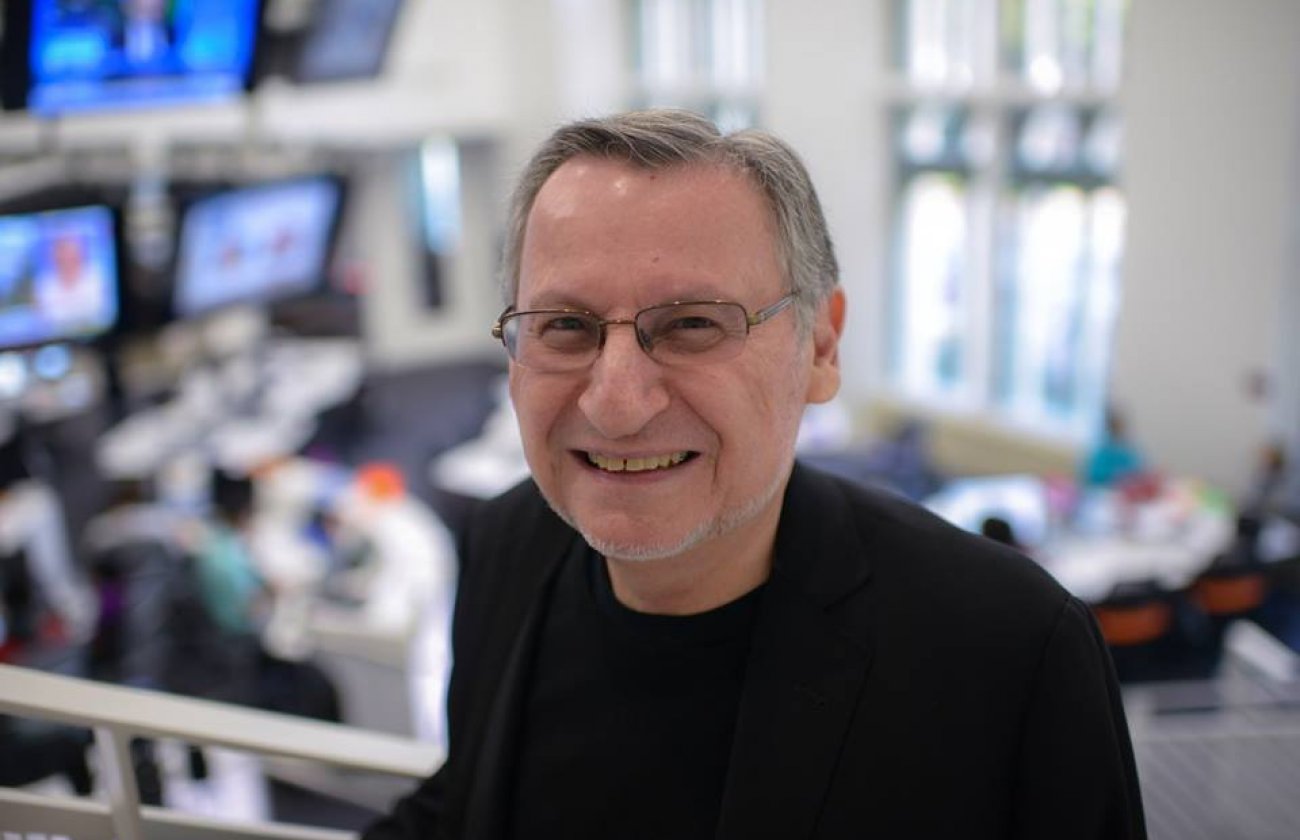Grammy-winning musician and producer T Bone Burnett delivered the School of Communication’s Commencement address, May 16, 2014. The following is a transcription of his speech. I am happy and grateful to be here at this moment of immense possibility. I’m going to start here — with the movie, The Graduate. This morning, I have one word for you … conscience. The goal of art is to create conscience. Not consciousness … but conscience. We now have in our hands an amazing tool — maybe the most powerful tool our civilization has ever known. At the moment, we don’t know that much about how it works, what we can do with it, or what it can do to us. We have invented a tool that may become our master. With that tool, we have unleashed a force that is creating an electronic universe that has been, to this point, deficient in conscience. When Michelangelo was painting the great fresco The Last Judgment in the Sistine Chapel, he came under intense criticism from various members of the church, particularly from the Pope’s Master of Ceremonies — a man named Cesena — who accused him of immorality and obscenity. Michelangelo’s response was to paint Cesena into the fresco in one of the lower circles of hell with donkey ears and a serpent coiled around him devouring, and covering, his nether regions, so to speak. Cesena was incensed and went to the Pope demanding he censor Michelangelo for this outrage, and the Pope said, “Well, let’s go have a look at it.” So, they went down to the chapel, and when the Pope stood in front of the painting, he said to Cesena, “That doesn’t look like you at all.” See, the Pope didn’t want to jack around with Michelangelo. Michelangelo was making things that were going to last for hundreds of years. His stuff was going to outlive the Pope’s ability to do anything about it, so he bowed to the inevitable. The Pope was afraid of Michelangelo. These are the boundaries an artist must draw for himself. It is not a simple matter to be a freelance poet in a mercantile society. One must protect his heart. It is easy to become disheartened. It’s easy to become cynical. Neither is a good idea. Today we face new challenges that have revealed themselves first and most forcefully in the world of music.
We, in this country, have defined ourselves through music from the beginning — from Johnny Has Gone for a Soldier in the Revolutionary War to John Brown’s Body and the Battle Hymn of the Republic in the Civil War to the incredible explosion of music of the last century that was called Jazz, or Rock and Roll, or Country Music — because although our music has taken many different paths, it is all of a piece. Recorded music is to the United States as wine is to France. It is at the very heart of our national identity. We have defined ourselves through our recorded music for over a century. We have spread our influence all over the world with the soft power of American culture. Louis Armstrong did more to communicate our message of freedom and innovation than any single person in the last hundred years.
We both have regions — France has Champagne, we have the Mississippi Delta. France has Bordeaux, we have the Appalachian Mountains. Our history, our language, and our soul are recorded in our music. This is the story of the United States: a kid walks out of his home with a song and nothing else, and conquers the world. We have replicated that phenomenon over and over. We could start with Elvis Presley, but we could add in names for hours — Jimmie Rodgers, Rosetta Tharpe, Johnny Cash, Nina Simone, Howlin Wolf, Loretta Lynn, Bob Dylan, Mahalia Jackson, John Coltrane, Billie Holiday, Chuck Berry, Peggy Lee, Hank Williams. They are all giants. That is the American Character. That is Johnny Appleseed. There is no truer nor more profound expression of who we are than the extraordinary outpouring of original forms of music that have flowed for decades out of our country. This country has been led by artists from Thoreau and Emerson to Presley and Dylan. The Arts have always led the Sciences. Einstein said that Picasso preceded him by 20 years. Jules Verne put a man on the moon a hundred years before a rocket scientist did. The Arts have always led the Sciences, but now the world of music has been under a twenty-year assault by the technology community, and the world of music faces a collapse. Not only have the sales of recorded music shrunk over fifty percent in the last ten years, but also most of the infrastructure of that world has been demolished — the clubs, the music stores, the whole ecosystem that developed during the great advance of the last century. If half the vineyards in France had been destroyed, creatively or otherwise, there would be a national outcry (in France and other nations). Here, the reaction to the destruction of the music industry has ranged from indifference to glee, in some quarters. This is an ethical problem. The scale of the larceny on the World Wide Web makes the scoundrels of the last century’s music business look like benefactors. Those scoundrels invested in artists. They built an entire ecosystem to support the Arts.
Now, if an artist raises his voice to object to the current scoundrels, he is told to get a real job — anonymously — by people who know nothing of making art. We need to rethink this. Los Angeles is the Athens of the modern world. All gods are worshipped here. All new ideas come here to be tried out. This town is the most prolific generator of media in the world. And you have come here to this extraordinary place to this great university to learn how to work this new contraption and how to navigate a revolutionary new way of life. You have self selected as the people who are going to set up a more just—a more ethical—future, because one gets the awful feeling that without a more just, ethical future, there will be no future at all. I am very interested in what you have to say. I’m not going to give you a lot of advice. I will, however, speak with you briefly from my experience of 50 years in the Arts. In a mercantile society, the only control an artist has is negative control. Don’t be afraid to say no. Keep your eyes open. Don’t avert your gaze. Don’t tell people what they already know. Don’t follow trends. Make the most beautiful thing you possibly can. Set strong boundaries. (And to the journalists—eliminate the anonymous comment. I insist.) Conscience is a feeling. It cannot be quantified or graphed. Conscience upends binary systems. The camera is mightier than the cannon. Art is irresistible. Build a world filled with conscience. So, I have chosen to be optimistic because I believe that people can—and even might—make the smart decisions about the epic challenges we face. If people are going to do that, it is going to be done through communication and with conscience. And I’m going to tell you this. I’m not kidding about this.
People self—select.
You are the ones.
Knock `em alive.









